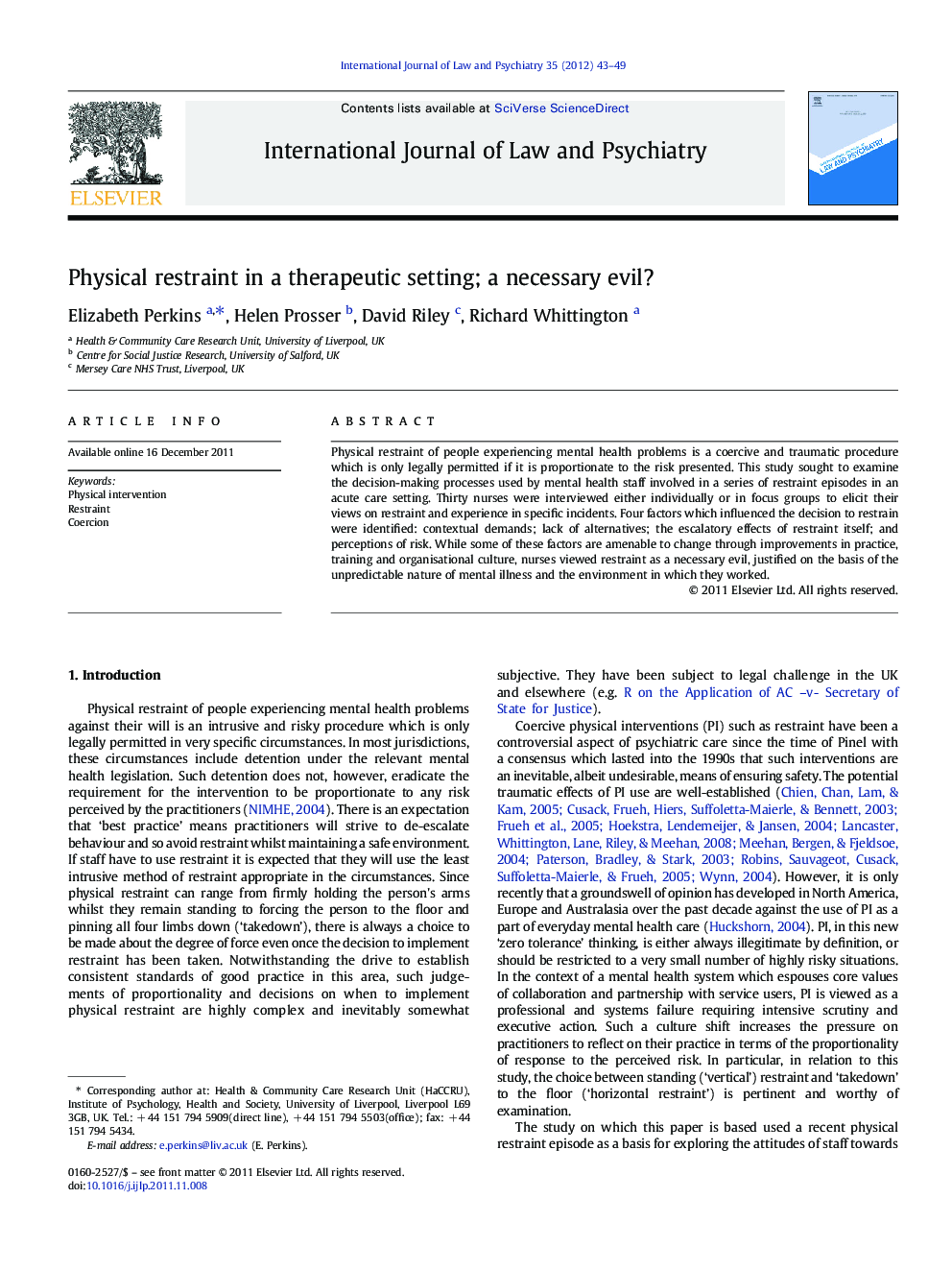| Article ID | Journal | Published Year | Pages | File Type |
|---|---|---|---|---|
| 100924 | International Journal of Law and Psychiatry | 2012 | 7 Pages |
Physical restraint of people experiencing mental health problems is a coercive and traumatic procedure which is only legally permitted if it is proportionate to the risk presented. This study sought to examine the decision-making processes used by mental health staff involved in a series of restraint episodes in an acute care setting. Thirty nurses were interviewed either individually or in focus groups to elicit their views on restraint and experience in specific incidents. Four factors which influenced the decision to restrain were identified: contextual demands; lack of alternatives; the escalatory effects of restraint itself; and perceptions of risk. While some of these factors are amenable to change through improvements in practice, training and organisational culture, nurses viewed restraint as a necessary evil, justified on the basis of the unpredictable nature of mental illness and the environment in which they worked.
